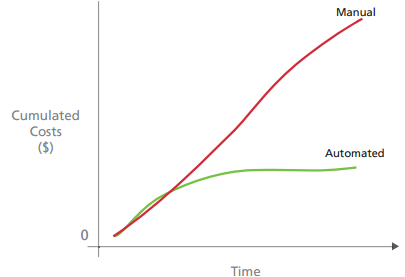
About CertiCon
Since 1996, CertiCon has been improving the competitiveness of our clients around the globe. CertiCon’s B2B solutions comprise the full spectrum of services and solutions in software development and quality-assurance verification testing. Our experience in the fields of medical and mission-critical applications and high-tech industrial applications enables us to harness the best practices and solutions for our clients. CertiCon designs, develops, rapid-prototypes and deploys sophisticated software solutions. Our projects and solutions cross medical and industrial domains leveraging cutting edge state of-the-art methodologies and technologies.
QF-Test used by CertiCon
The project
The project is a sophisticated vehicle diagnostic solution which integrates existing applications, extended applications, and new applications and processes, into a common system. The potential clients are authorized dealerships and freelance workshops.
From the end-user's perspective, the application eliminates multiple user inputs with the implementation of single takeover and single sign-on mechanisms. The initial goal of the project was to create a lean solution that delivers competent diagnostic results to its end-users.
The challenge
Release after release, the application grew with the addition of more features. Maintaining the defined quality assurance process was a demanding task.
With over 2,000 manual test cases (increased with every release), we faced the challenge of reducing the time needed for testing, and in the process, continue to add new test cases and improve the quality of the software overall.
Solution

With a stable testing environment, automating the testing process was the answer to our needs. The proverbial tool of choice was QF-Test by Quality First Software GmbH, a licensed professional tool for regression and load testing of Java and Web applications with a graphics user interface (GUI).
The automation process included the following stages:
- Writing initial testing scripts, common for all test cases.
Reusability
- Recording individual test cases as separate sequences.
- Executing the testing scripts.
- Amending testing scripts after the fixing of defects revealed in the application during script execution.
- Preparing test suites for daily regression testing executed on the latest release.
Results: Reduced testing time by almost 50%!
In a matter of months we succeeded in reducing the test processing time by almost 50%, adding hundreds of additional test cases, with the test cycle and schedule remaining intact.
As depicted by the general figure, although the initial investment on additional resources was high, in the long run, the time and cost of software testing was reduced and the addition of test cases and increased regression testing brought with it improved software quality.